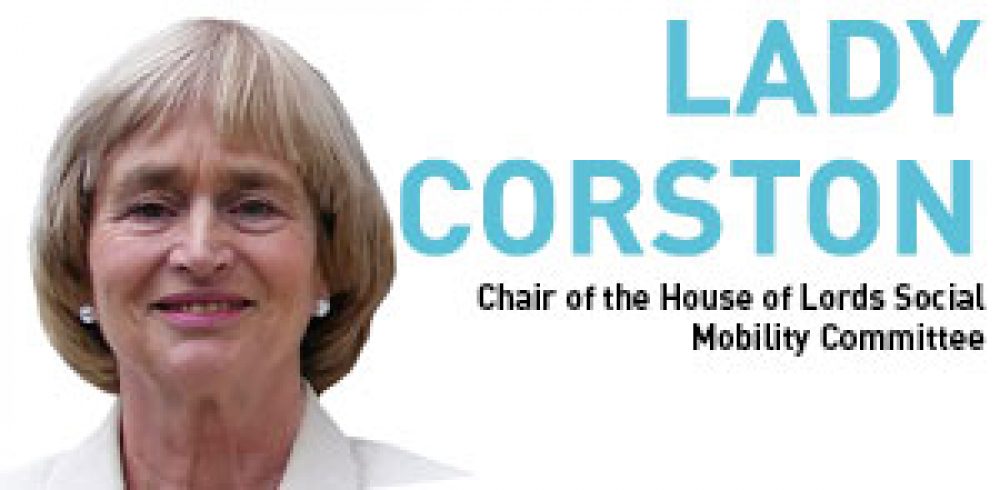The House of Lords Social Mobility Committee has heard from a number of figures related to education and training across its three evidence sessions so far. It has now launched a call for evidence from the very 14 to 24-year-olds at heart of its investigation, explains Lady Corston.
In recent weeks, it has been reported that youth unemployment in the UK is well above the national average, that there is an alarming skills shortage in Britain’s labour market on the horizon and that the FE sector is under greater financial strain than ever before.
In the context of rising inequality in the UK, the opportunities for young people to move on and get a job with career prospects appear to be increasingly scarce.
This is the environment in which my committee finds itself. We have been appointed to investigate the transition from school to work, and to make recommendations on what we find.
We have now launched our call for evidence, and we want to hear from those involved in FE, careers guidance, or working with 14 to 24-year-olds in any way, and helping them prepare for their future in the workplace.
Recently, focus has been placed on those who study A-levels and who are able to go on to university, and those who are not in education, employment or training (Neet) at all.
We want to look at the group that falls between these two categories. This group could make up as much as half of all 16 to 19-year-olds — if not more.
Too little attention has been given to them for too long and, through our inquiry, we hope to establish what they need to help them secure long-term employment by talking to businesses, experts and most importantly, young people.
Our call for evidence is straightforward — we have five important areas we want to hear about.
The first is to understand the most significant factors that affect employment outcomes for young people. The second is to find out what is known about the group of young people who do not follow the A-Level and higher education route, and in particular what their career trajectories are.
We want to know if the current system supports the transition from school to work for everybody and, if not, why it does not. We also want to know what challenges these young people face in trying to get a good job with prospects.
Finally, we want to investigate how the transition system can be improved, who should be responsible for the improvements, as well as for seeing young people through it successfully.
Further, we are not doing this in isolation from current policy. Apprenticeships are seen as one of the solutions to youth social mobility and the government intends to create 3m apprenticeships by 2020.
If young people are to be best prepared for a long and successful career, the quality of these apprenticeships and how they best meet the needs and training requirements of this cohort are essential, and something the committee will consider.
The window to submit evidence closes on September 14, and we continue taking oral evidence in the autumn. We have already heard from government officials, academics, think tanks and also from former deputy Prime Minister Nick Clegg, who was responsible for the previous government’s social mobility strategy.
From October, we intend to meet with young people, FE college and school leaders, employers and with the third sector, to find out more about improving employment outcomes for all young people. We are particularly keen to work with employers, young people and the education sector together to inform our final recommendations to the government.
Alongside the traditional evidence-gathering mechanism of a Parliamentary select committee, we have launched a questionnaire for 14 to 24-year-olds.
We want to hear what they think their current options are, as well as about the challenges they face. We urge those who work with anyone in this age range and who will not, or has not, completed A-levels and gone on to university, to share this questionnaire with them and invite them to complete it to ensure their voices are heard by the committee.
Please submit evidence to the inquiry, and pass the call for evidence on to anyone who may be interested in submitting something themselves. Any questions about the call for evidence, or about the committee’s work at all, can be sent to hlsocialmobilitycmttee@parliament.uk — I look forward to hearing from you.
Follow the committee on Twitter via the #HLSMC hashtag.
https://www.youtube.com/watch?v=1J1OPIP3568








Your thoughts